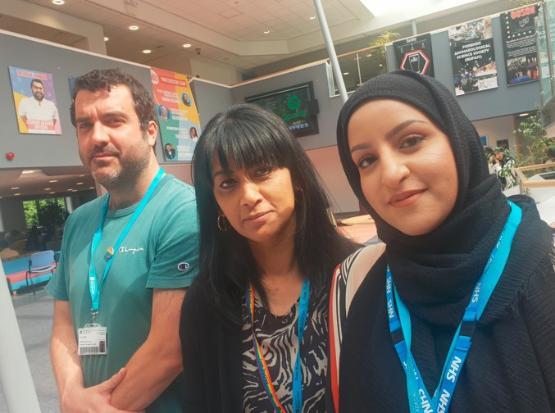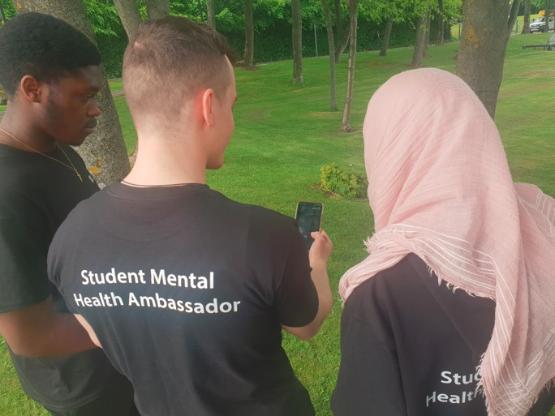University tackles mental health with new 'app' and student ambassadors

Students at the University of Bradford can now access a range of mental health and other support online.
The uobwell ‘app’ hosts an array of support and is aimed at increasing mental health support among South Asian students - although the ‘app’ is available to anyone.
Co-project lead Reena Uddin said the idea was to overcome the stigma associated with seeking mental health support and to empower students who would not normally access those services.
She said: “It’s about giving students access to information any time, any place, anywhere, thereby enabling them to achieve their full potential. We know that some students - particularly those from South Asian backgrounds - do not access mental health support as much as other groups, and we are looking to find out why this is and what the university can do to offer more support to these students.”

Mental health ambassadors
According to the University’s own engagement statistics, South Asian students make up 58.5% of the student body but accounted for only 39% of the users of mental health services in 2019/20 (36% in 2018/19 and 38% in 2017/18). This consistently lower take up of support is correlated by data from the University of Bradford’s academic appeals process, where 72% of retrospective appeals based on undisclosed mental health issues are made by South Asian students.
Scott Feather, co-project manager said encouraging students to engage with mental health support services and be open about difficulties they face would be beneficial. To help this, the project has created a number of Student Mental Health Ambassador (SMHA) positions with the belief that peer to peer interventions can help break down stigma and give confidence to students to speak up when they would not normally do so.
Reena added: “It might be that students are reluctant to engage with services, or even speak about issues affecting them. This new digital wellbeing resource offers them a way of accessing information and help if they need it, bringing together multiple services and signposting students to them including the informal access to mental health ambassadors.
“Statistics show that where people have an issue affecting their mental health, if they seek support, they go on to achieve better results, so this is why we are keen to promote the app and ambassador role, particularly to new students starting in September.”
One of the projects key partners is Bradford’s MyWellbeing service.
Faryal Akhtar the Service Liaison Officer for the project said: “Being able to work with the student mental health ambassadors to deliver events at the university as part of this project helps to raise awareness around common issues surrounding mental health especially within the BAME and south Asian communities.
“This in turn urges individuals to seek out support knowing they are not alone and reinforcing inclusivity. The app is a great way to find information and services that can be accessed. It is a quick and easy way to seek guidance and will be a great tool for all students and staff to utilise.”
Helping students
The University won a bid to develop the app in August 2021. The app has been developed by the Working Academy in conjunction with Bradford District Care NHS Foundation Trust (BDCFT), and will be delivered in conjunction with the UBU students’ union.
Student Alkestid Sterjo, originally from Albania, who is doing a Master’s in international relations and security studies, having graduated in August with a degree in human resource management, is one of 13 new SMHAs.
He said: “I think it’s vitally important we pay attention to people’s mental health. There has in the past been a big emphasis put on physical health but people’s mental wellbeing is just as important.
“Students experience a lot of pressure, because they are often in a new environment, with a heavy workload and certain expectations, or they may have family commitments, and so on, so having access to people who they can talk to is important.”
